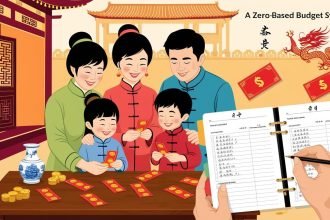As Treasury yields rose to new multi-year highs and persistent concerns around China’s housing sector impacted on investor mood, U.S. stock index futures fell in early Tuesday trade, extending losses from the previous session.
Futures for the S&P 500 index dropped 0.6% to 4,353, pointing to a lackluster opening on Wall Street later today. Futures on the Dow Jones Industrial Average down 181 points, or 0.5%, to 34,092, while those on the Nasdaq 100, which is heavily weighted toward technology, fell 66 points, or 0.6%, to 14,842.
The Dow Jones Industrial Average rose 0.13% to 34,007, the S&P 500 rose 0.4% to 4,336, and the Nasdaq Composite rose 0.45% to 13,271; however, futures have since retreated.
The benchmark 10-year Treasury yield has risen to roughly 4.57% in early trade, contributing to a risk-off mood on financial markets. That’s the most it’s been since 2007 and it shows rising predictions that the Federal Reserve would maintain rates raised for a lengthy term as it fights decades-long inflation.
Bets on rate hikes have been bolstered by recent comments from Fed members. Jamie Dimon, CEO of JPMorgan Chase, recently warned that interest rates could rise to 7% if inflationary pressures aren’t mitigated. In recent days, hawkish comments from several central bank policymakers have been repeated.
This year, rising rates have been bad news for the stock market as the Federal Reserve has tightened monetary policy, increasing the attractiveness of bonds and placing downward pressure on stock prices. On Tuesday morning, the inverse relationship between rates and stocks was front and center.
Worries about global growth have been exacerbated by a combination of factors, including increased rates and persistent turbulence in China’s property development sector. When China Evergrande failed on some of its debt obligations and its former executives were jailed, the stock price of the company plummeted.
As a result of worries about a domino effect, the Hang Seng index in Hong Kong fell 1.4%, hitting a level not seen since November 2020.
Rising rates, China worries, and a stronger U.S. dollar have all led to a risk-averse market. On Tuesday, the dollar index climbed above 106 for the first time in about 10 months. U.S. multinational corporations often suffer as the dollar strengthens.
Managing partner at SPI Asset Management Stephen Innes said, “risky assets, particularly long-duration stocks, have struggled to absorb these rate increases…the correlation between equity prices and bond yields has turned negative again, reflecting the ‘good news is bad news’ sentiment in the U.S.”
Many investors worry that stock prices will continue to fall as the Federal Reserve stays committed to reducing decades-long inflation at whatever cost to economic expansion. FedEx and Nike’s recent cautions about weakening consumer demand have added to doomsday predictions of an economic recession.
Read More: Federal Reserve Holds Rates Steady But Hints at More Hikes Ahead This Year
“The market is still going through a bottoming process,” said Peter Essele, head of portfolio management at Commonwealth Financial Network. “If the Fed is serious about stopping inflation, it is going to have to slow the economy even further, and markets are still coming to terms with how much damage that will cause.”
Investors will be watching the S&P Case-Shiller home price index for July and new home sales figures for August, both of which are scheduled for release at 10am ET on Thursday. Data on consumers’ mood in September is also expected to be released at this time.
The housing market and consumer confidence numbers will be scrutinized by investors for more information on the state of the American economy. Rate-hike predictions in the future may be affected by the numbers.
The combination of rising interest rates, persistent inflation, and worries about global economic growth has kept investors on edge. Until the Fed’s rate hike plan and the direction of economic growth become clearer, experts predict that stocks will remain volatile and vulnerable to losses.





